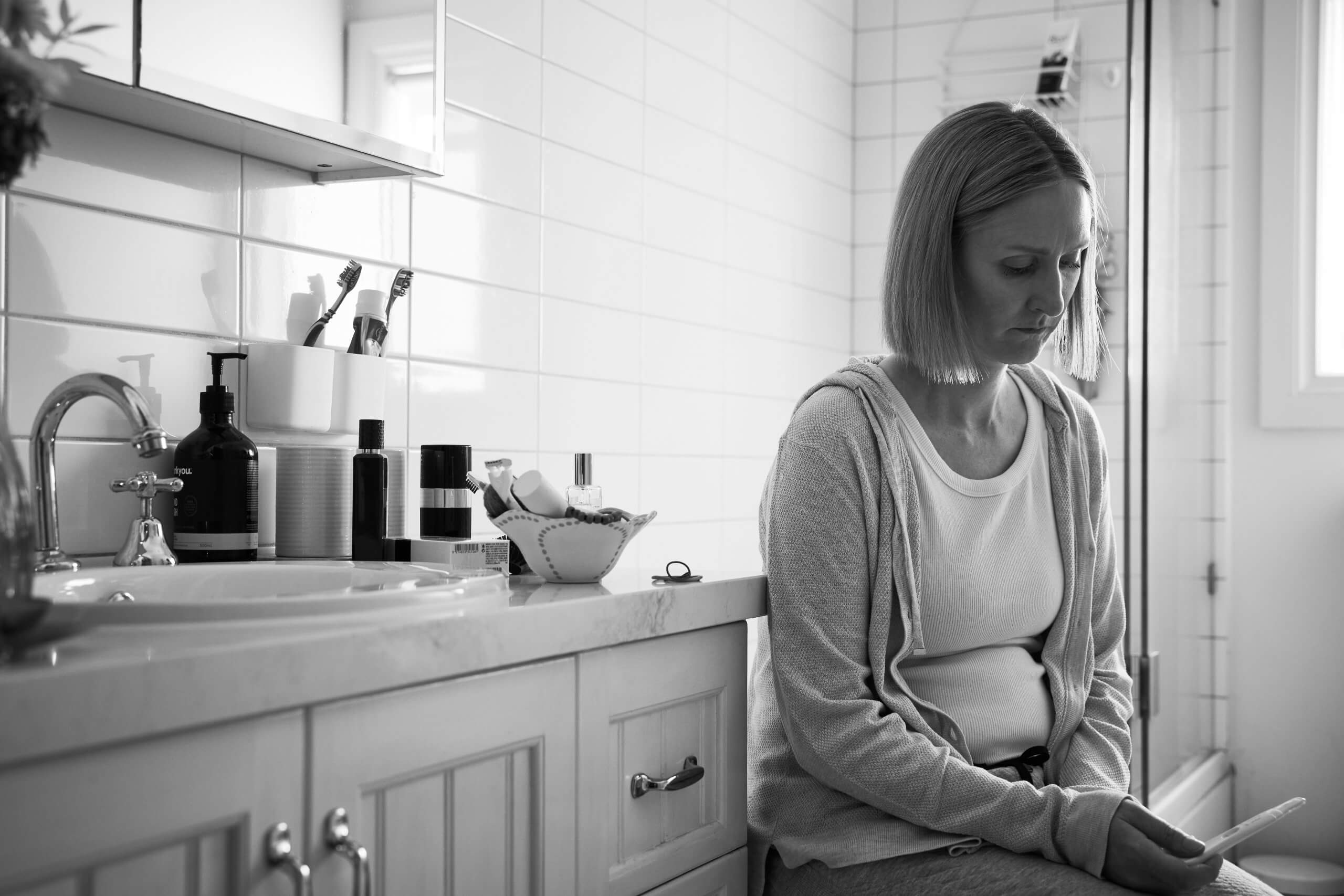
The truth behind infertility – Melinda’s Story
Posted by Nicole Highet on 26th February 2022
“The truth is infertility is an emotional and physical rollercoaster”
It took five years and one month for Melinda to fall pregnant with Avery who is now almost three years old. “It was a lot longer than we expected,” she says of her and husband Robbie’s journey through IVF, which lasted a total of nine years. “That’s a quarter of my life.”
Melinda and Robbie are also proud parents to Kalyah and baby Isla. But while the couple now has three beautiful daughters, the pain of what they endured to have their family is still raw.
“I was in my twenties when we first started,” Melinda says, adding that she thought falling pregnant would “just happen like I’d watched it happen for everyone else around us.” But the reality was very different.
While the couple began with a lot of hope (Melinda says she always dreamed of having a large family), “month by month, year by year, it would all go by and still, nothing would happen,” Melinda says. “Eventually there was just no hope. We just ended up expecting disappointment each time because that was easier.”
The couple began IVF, with Melinda experiencing a rare complication, Ovarian Hyperstimulation Syndrome (OHSS) three out of the four times she had her egg retrieval. “I couldn’t walk for three days,” she says of the first and second time she experienced the condition. OHSS is a response to hormones and causes painful and swollen ovaries. For Melinda, it also meant extra days off work while also trying to hide what she was going through.
Read more about infertility and mental health
The couple began IVF, with Melinda experiencing a rare complication, Ovarian Hyperstimulation Syndrome (OHSS) three out of the four times she had her egg retrieval. “I couldn’t walk for three days,” she says of the second time she experienced the condition. OHSS is a response to hormones and causes painful and swollen ovaries. For Melinda, it also meant extra days off work while also trying to hide what she was going through.
When the “never-ending appointments” began and the couple’s first miscarriage put a strain on her job, Melinda decided to hide it when she began a new job.
“It gave me an outlet, somewhere to go where nobody knew anything and I didn’t have to explain,” she says.
The couple also made financial sacrifices to afford the costly treatment, with Melinda describing that they didn’t go on holidays or buy a new car. “There’s a big misunderstanding of how expensive it is.”
The pressure of time was also immense. “It felt like a deadline,” Melinda explains, adding “as long as we were able to keep trying, we needed to keep trying. We felt like a ticking clock.”
When she did fall pregnant, Melinda tragically suffered a miscarriage due to an infection from the OHSS. “I had to have surgery,” she recalls. “Mentally that just destroyed me. It was just one thing continually after another.”
Melinda was in so much physical pain from OHSS and her miscarriage that it would be six weeks before she was able to mentally process what she had been through.
For Melinda, one of the most challenging aspects of her IVF journey was the side effects of the medication she was taking. “It caused depression when you’re already in a situation that makes you feel depressed,” she says.
After years of trying, Melinda eventually reached the stage where physically and emotionally, “I couldn’t go through it anymore”.
“We’d lost all hope by that point,” she says, adding that they sat with this decision for six months before deciding to try again. “We decided we couldn’t forgive ourselves if we did stop.”

Along with the emotional, physical, and financial impacts of undergoing IVF, Melinda says it affected the couple’s relationship with friends and family who often couldn’t understand what they were going through.
“There were people who didn’t want to be supportive,” she says. “Those relationships quickly went away. You feel like a burden. People don’t want to hear your story anymore so it’s easier to stay hidden away.”
Side-effects of her medication often left Melinda teary and bloated, which made facing questions even more difficult. “It was just easier to hide.”
It’s one of the reasons Melinda has chosen to share her story as part of COPE’s The Truth Campaign – to help raise awareness so others are more educated about the toll infertility can take in so many areas of your life.
“It’s definitely a topic that needs to be better understood and more acceptable to talk about,” she says.
But while the physical and emotional scars of the past nine years may take some time to heal, Melinda and her husband know how fortunate they are.
“I didn’t expect we’d ever have kids,” she says. “So, to now have three – we feel extremely lucky.”
The facts about infertility and mental health
Dr Nicole Highet, Doctor of Psychology (Clinical / Perinatal)
 Infertility affects one in six couples.
Infertility affects one in six couples.
COPE research undertaken with consumers, highlights the significant emotional and mental health impacts for individuals and couples experiencing infertility and going through infertility treatments.
Balancing hope and managing despair over time has significant negative impacts on mental wellbeing. Added to their distress is financial pressure, strained relationships and isolation. This ultimately increases the likelihood of anxiety and depression.
These hidden impacts of infertility have lead this to be a focus of COPE’s perinatal mental health awareness campaign ‘The Truth’.
Despite the mental health impacts, often mental health is overlooked by professionals and services, as the focus of treatments remain solely on physiological aspects of treatment. As a result, depression and anxiety remains undiagnosed, and individuals and couples are struggling without support and treatment.
COPE strongly advocates for a broader awareness of the mental health impacts of infertility in the community, as well as amongst workplaces. Professionals must acknowledge and respond to the unique needs of this population group through routine screening and assessment and inquiry into emotional and mental health needs of patients undergoing infertility treatment.
More information and access to tools for health professionals, workplaces and those experiencing with infertility, visit the COPE website.
To find help and support for infertility in your area or via telehealth, visit the e-COPE Directory.